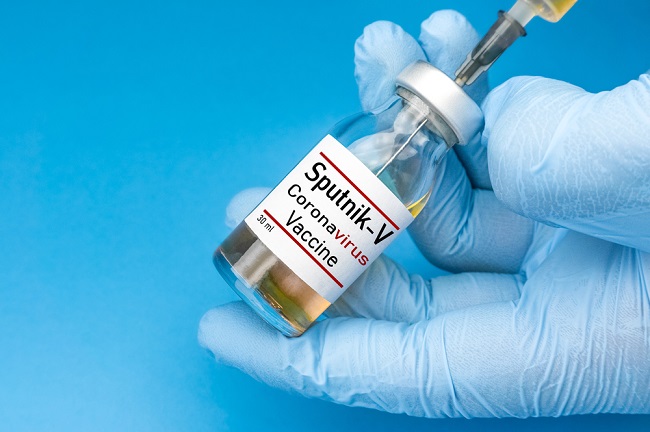Rho or anti-D immunoglobulin is a drug to prevent hemolytic anemia due to rhesus differences between the fetus and the mother (rhesus incompatibility). This condition occurs when the fetus is rhesus positive while the mother is rhesus negative.
Rho works by preventing the formation of Rh antibodies in the mother's body during pregnancy and after delivery. Rh antibodies are formed when there is a rhesus difference between the fetus and the mother.

These antibodies will then attack the fetus with rhesus positive in the second pregnancy and beyond. If this condition is not prevented, the newborn can develop life-threatening hemolytic anemia.
Rho is also given to rhesus negative patients who have already received blood transfusions from rhesus positive patients. Giving Rho in this condition aims to prevent fatal side effects, such as shock and kidney failure. In addition, Rho immunoglobulin can also be used in the treatment of idiopathic thrombocytopenic purpura (ITP).
Rho trademark: HyperRho S/D
What is Rho
| group | Prescription drugs |
| Category | Immunoglobulins |
| Benefit | Prevent hemolytic anemia in newborns due to rhesus incompatibility, prevent the formation of Rh antibodies due to blood transfusion with inappropriate rhesus, and treat idiopathic thrombocytopenic purpura (ITP). |
| Used by | Mature |
| Rho for pregnant and lactating mothers | Category C: Animal studies have shown adverse effects on the fetus, but there are no controlled studies in pregnant women. The drug should only be used if the expected benefit outweighs the risk to the fetus. It is not known whether Rho can be absorbed into breast milk or not. If you are breastfeeding, consult your doctor first about the benefits and side effects of Rho. |
| Drug form | Inject |
Precautions Before Using Rho
Rho injections should only be given in a hospital by a doctor or medical personnel under the supervision of a doctor. There are several things to consider before using this drug, including:
- Tell your doctor about any allergies you have. Rho immunoglobulin should not be given to patients who are allergic to this drug or to other immunoglobulin drugs.
- Tell your doctor if you have a deficiency of any type of immunoglobulin (IgA), or hemolytic anemia. Rho immunoglubulin should not be given to patients with this condition.
- Rho should not be given to newborns.
- Tell your doctor if you have or are currently suffering from diabetes, anemia, high triglycerides, stroke, coronary heart disease, pulmonary edema, blood clotting disorders, such as hemophilia.
- Consult your doctor first if you plan to have any vaccinations while using Rho.
- Tell your doctor if you are taking certain medications, supplements, or herbal products.
- Tell your doctor if you are pregnant, breastfeeding, or planning a pregnancy.
- Report to your doctor immediately if you experience an allergic reaction, serious side effect, or overdose after using Rho.
Dosage and Dosage of Rho
Rho immunoglobulin is injected into a vein or muscle tissue (intramuscular / IM). The doctor will determine the dose according to the patient's condition and weight. In general, the following are Rho dosages based on their intended use:
Purpose: Prevent hemolytic anemia in newborns due to rhesus incompatibility
A dose of 1,500 IU is injected into the muscle tissue of pregnant women as a single dose at 28–30 weeks of gestation and 0–72 hours after delivery.
Purpose: Prevents the formation of Rh antibodies after blood transfusion
Intramuscular injection of 100 UI (20 mcg) per 2 mL of transfused rhesus positive red blood cells. Maximum dose 15,000 UI (3,000 mcg)
Purpose: Treat idiopathic thrombocytopenic purpura (ITP)
The initial dose is 250 IU/kg BW, injected into a vein as a single dose or in 2 divided doses on separate days. For patients who are already anemic, the recommended dose is 125–200 IU/kgBW (25–40 mcg/kgBW), given as a single dose or divided into 2 doses.
How to Use Rho Correctly
Rho will be given at the hospital and injected directly by a doctor or medical personnel under the supervision of a doctor. Follow the doctor's instructions while on treatment with Rho for maximum treatment effectiveness.
The doctor will inject Rho drugs into the patient's blood vessels or muscle tissue. Doctors will monitor the patient's breathing, blood pressure, oxygen levels, and kidney function during treatment with Rho. You will also need to have a urine test every 2–4 hours, for at least 8 hours.
For treatment during pregnancy, Rho immunoglobulin will be given periodically in the last trimester of pregnancy and given again after the baby is born. For the treatment of inappropriate blood transfusions, Rho drugs are given when symptoms appear.
During treatment with Rho, follow the advice given by your doctor. You will be asked to have regular blood tests to monitor the response to therapy.
Rho Interactions with Other Drugs
If Rho is used in combination with injections of vaccines that use live germs, such as BCG, chickenpox, MMR, influenza, or rotavirus vaccines, the effectiveness of these vaccines will decrease.
Always tell your doctor if you plan to use any medications, supplements, or herbal products, while on treatment with Rho.
Rho . Side Effects and Hazards
There are some side effects that may occur after using Rho, namely:
- Warmth in the face, neck, or chest (flush)
- Headache or dizziness
- Excessive sweating
- Joint pain or muscle pain
- Drowsiness, malaise, or weakness
- Nausea, vomiting, diarrhea, or stomach pain
- Swelling or pain at the injection site
Check with your doctor if the side effects above don't go away or get worse. Rho can also increase the risk of intravascular hemolysis which can cause anemia, acute renal failure, DIC (disseminated intravascular coagulation), or respiratory distress syndrome.
See your doctor immediately if you have an allergic reaction to a drug or have symptoms and symptoms that indicate a more serious side effect, such as:
- Fever, chills, weakness, back pain, or pallor
- Coughing up blood or shortness of breath
- Bloody urine or very little urine
- Swelling, warmth, and pain in the legs
- Sudden numbness or weakness on one side, sluggishness, or blurred vision









